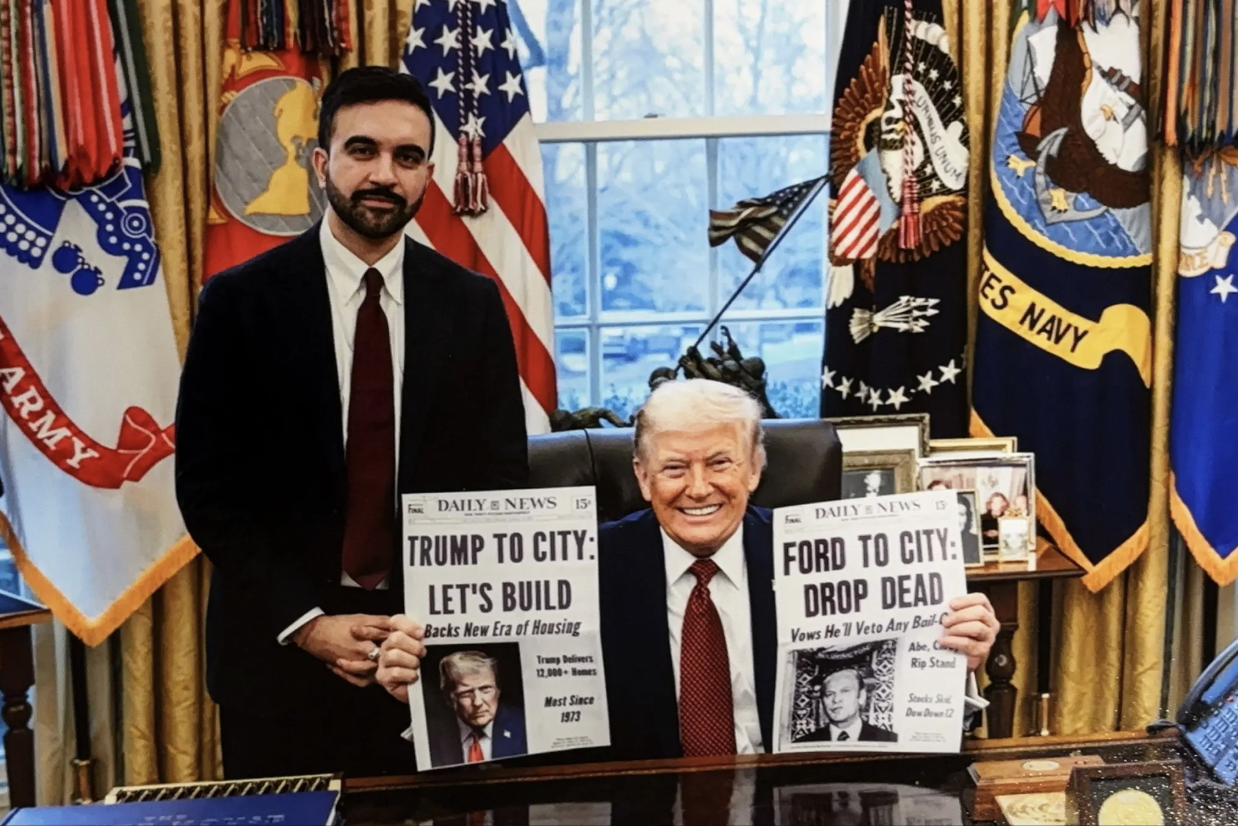A proposed Caesars Palace casino in Times Square that’s backed by Jay-Z lost its bid for a gambling license Wednesday after running into fierce opposition from Broadway theater owners and producers who were worried about its potential impact on the theater district.
A state-commissioned community advisory committee brought the curtain down on the $5.4 billion plan to redevelop an office tower into a Caesars-branded hotel, gambling and entertainment complex, rejecting it in a vote that occurred after public hearings in which the Broadway League, actors, stagehands, restaurant owners and neighborhood residents lined up to oppose the project.
Marc Holliday, CEO of SL Green, which was the project’s primary developer and property owner, torched the decision following the brief vote in a small conference room overlooking Times Square.
“This was a despicable display of cowardice, a complete lack of consideration for all the people who would benefit from this,” he shouted at committee members as they silently filed out. “Go run and hide.”
Local board approval was required for the proposal to be considered by the state Gaming Commission, which plans to award up to three licenses for New York City-area casinos in December.
The fight over the casino was largely about whether an influx of gambling tourists would help, or hurt, a theater district still recovering from the COVID-19 pandemic.
The Times Square casino developers, which included Jay-Z’s ’s Roc Nation company, proposed renovating an office tower at 1515 Broadway that currently houses the Minskoff Theatre, which is home of long-running “The Lion King” musical.
They envisioned the Caesars-branded gambling hall becoming one of the world’s preeminent resort casinos and had lined up other influential backers, including the Rev. Al Sharpton and former NYPD Commissioner Bill Bratton.
But theater owners, producers and theatrical labor unions strongly opposed the plan, staging boisterous protests in Times Square and packing community hearings in recent months.
The Broadway League, a trade group representing the theaters, argued that the proposed casino would draw patrons away from neighborhood businesses. Broadway workers flocked to public hearings to voice – and sometimes sing – their objections to the proposal.
“Start spreading the news, a casino would be in the way,” Sam Dallas, a general manager of Broadway shows, crooned to the tune of “New York, New York” at a hearing on Sept. 11. “It wants to be a part of it, of old Broadway. No way!”
But other locals and workers came to support the plan, arguing it would create new jobs.
Matt Goldman, a co-founder of the Blue Man Group and the executive director of The Town Hall, which has a theater in the area, encouraged the committee to at least keep the casino proposal in the running so the state panel could decide.
“I can tell you first-hand that more tourism, more gaming — folks doing gaming — brings more people to the restaurants, brings more people to theater,” he said at the hearing, noting that he has had a show in Las Vegas.
Sharpton, who has been a vocal backer of the casino plan, criticized the vote as a decision that preserved the historically white control of Times Square entertainment businesses. The casino plan had included space for a a multimillion-dollar civil rights museum.
“We will remember that in the community,” Sharpton said after the committee voted.
Jay-Z and other casino backers had insisted the casino wouldn’t compete with existing businesses in the neighborhood, but compliment them.
“New York City is the entertainment capital of the world, so the idea of a world class casino here makes perfect sense,” Jay-Z said in a recent interview with City & State, a publication covering state and local politics.
“Casino visitors will buy tickets, fill seats, book dinners before shows, and keep hotels in the area full,” Jay-Z said. “We’re creating a hub that draws even more people into the neighborhood, generating new energy, new business, and new opportunities for everyone.”
Two other casinos had been proposed for Manhattan: one on its West Side near the Jacob K. Javits Convention Center and another on its East Side near the headquarters of the United Nations. Another community board on Wednesday rejected one of those projects, the Avenir, which would have been built in the West Side’s Hudson Yards area.
Also in the running is a Bally’s casino on a public golf course in the Bronx that was once run by President Donald Trump’s company. That project could result in a $115 million payday for the Republican if developers win a license.
Elsewhere, a sprawling gambling hall is envisioned along Coney Island’s iconic boardwalk in Brooklyn, and a Hard Rock casino has been proposed next to Citi Field in Queens, where the New York Mets play.
Two “racinos” — slot parlors built alongside horse racing tracks — are also seeking a license to become full-fledged casinos with live table games such as blackjack and poker. MGM Resorts is proposing a $2.3 billion expansion of the Empire City Casino at Yonkers Raceway. Resorts World, owned by Malaysian casino giant Genting, is proposing a $5.5 billion investment to its gaming facility at the Aqueduct Racetrack in Queens.
The casino race comes after New York voters in 2013 approved a referendum authorizing up to seven full casinos in the state.
Four full casinos have since opened, though all of them are located upstate, far from Manhattan.
The state also has nine gambling halls offering slot machines and other electronic gambling machines but no live table games.












